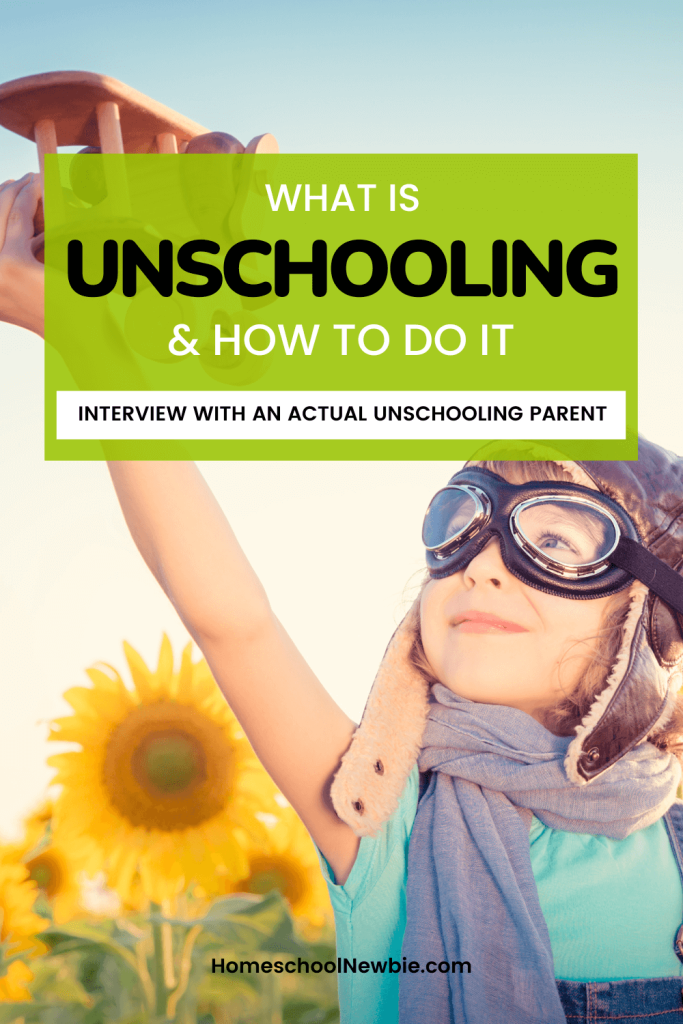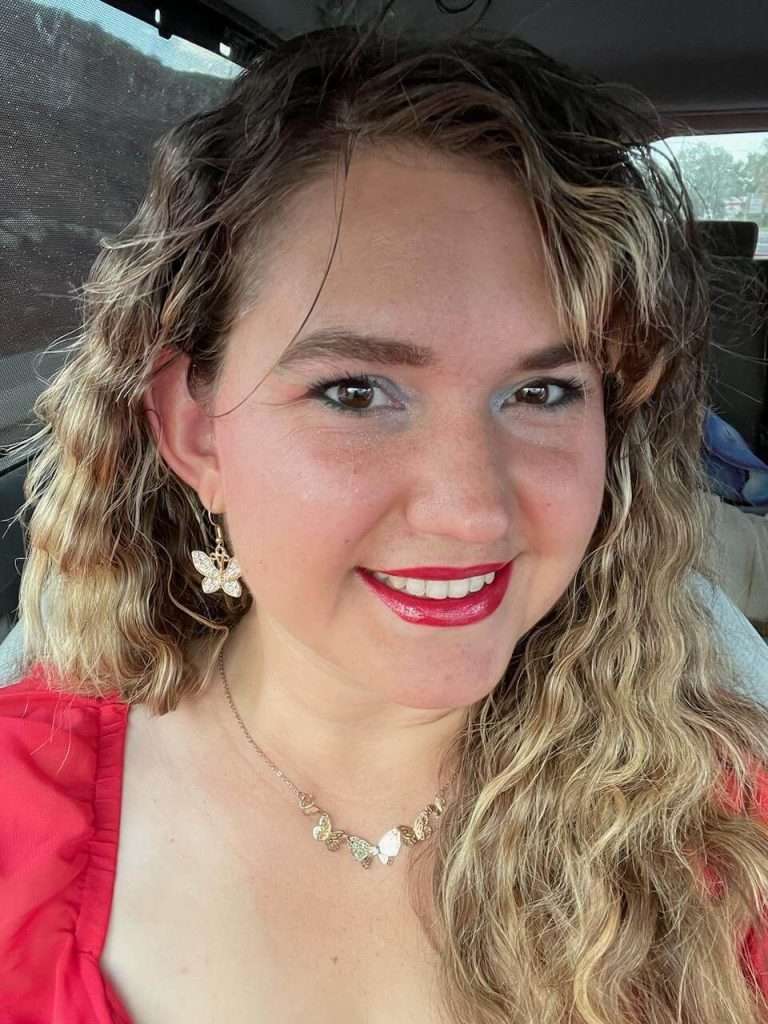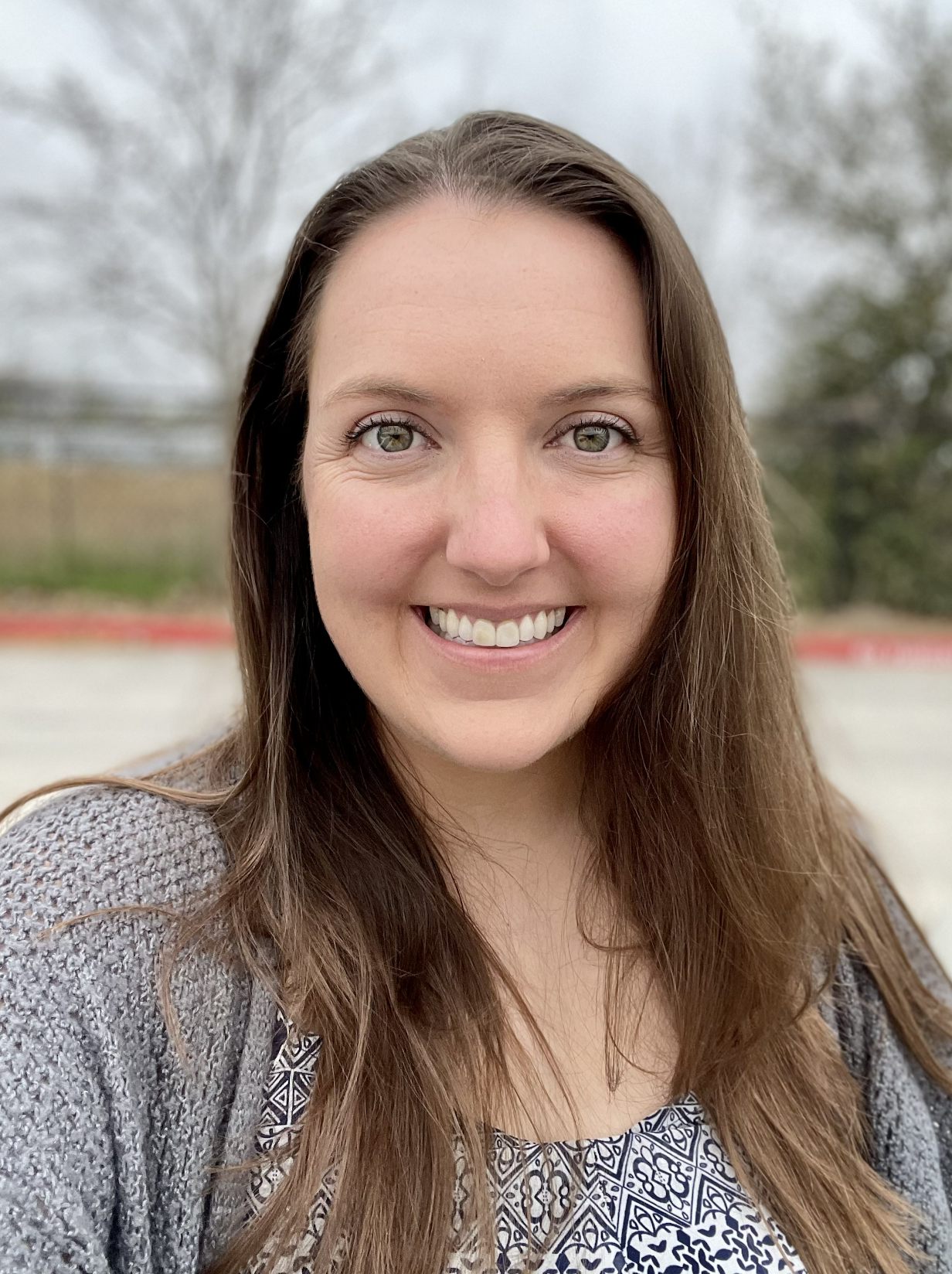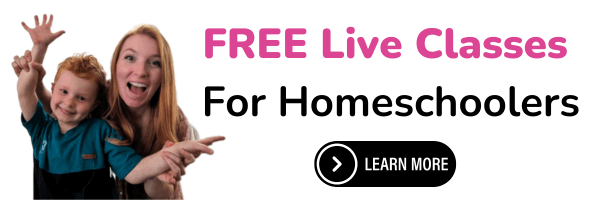Learn from a real-life unschooling parent about what unschooling is and how to unschool your kids. Get an insider’s peek into a day in the life of an unschool family’s routine, and planning process. What to know before you get started.
As a former public school teacher, I had no idea that unschooling even existed. Traditional education was all I knew up until I entered the world of homeschooling.
When I decided to look into homeschooling my own children, I reached out to other homeschooling families in my community, met some amazing homeschooling parents, and learned new perspectives about education.
And boy were my eyes opened!
Today, YOU get to meet one of those amazing homeschooling parents, Celestial!
Read about her unschooling experience in the interview below to give you some unschooling ideas.
Table of Contents

Unschool Interview with Celestial
Meet Celestial, a mother of 4 (with one on the way!) who has been homeschooling her own children in addition to two of her siblings for 8 years and counting.
She has an ASA and BA in family life and human development. In addition to homeschooling, she also has two years of experience teaching preschool and working as a private ASL tutor and translator.

I’ve asked Celestial to help me and you learn all about the world of unschooling. She kindly agreed to the interview you’ll read about below. I hope you enjoy it!
What Is Unschooling
Before we dive straight into the interview, let’s clear up what unschooling is for those of you who are like me and are new to this term. Here’s a simple unschooling definition for you.
Unschooling is a style of homeschooling that embraces the natural curiosity and instinct to learn in children. It offers your children the flexibility to learn based on their individual interests.
Unschoolers are not limited by a curriculum but rather use learning opportunities as they explore their passions.
First Off, What Is Unschooling?
What does unschooling mean? Celestial, an unschooling parent, explains that unschooling brings more freedom for her kids to follow their interests and develop into lifelong learners.
“This also means that you don’t tell them to sit still, be quiet and memorize facts.”
“Instead, you let them follow interests and go down rabbit holes to do their own research. It’s active parenting and helping mentor your children/ student into interested human beings excited for life!”
Why Did You Choose to Unschool Your Children?
Celestial believes that unschooling brings more learning opportunities than traditional schooling offers. She believes that traditional education skims over subjects such as social and emotional skills, financial literacy, and other subjects that teach important life skills.
“We believe so much time in school is wasted on things that don’t matter, things that can be looked up in a quick search online, and things that don’t impact their lives.”
“On the contrary, financial strategies, health codes, and formulas for a higher probability of a good relationship in life are being ignored in school.”
What Are the Pros and Cons of Unschooling For You?
Pros of Unschooling
- Kids get to learn about things that interest them.
- I see my kids learn how to do math and reading quickly and simply.
- We have less frustration in our lessons.
- My kids are never bored. You can learn all day every day without even knowing 😉 Kids don’t think they are really learning when they truly are.
- It brings creativity and fun into learning which leads to a lasting love of learning.
- Kids also learn to not think like obedient drones. They’re not just learning to become employees, reliant on a job. They learn more creativity, solve problems, and figure out and navigate life.
Cons of Unschooling
- It takes more intentional lesson planning
- You need to make an extra effort to get out of the house (it can be tempting to stay home)
- There are no cut-and-paste situations. Each day and learning opportunity is unique.
- There is a need to accommodate many interests of multiple children
- Kids might be a little less disciplined when being asked to sit still or follow orders.
What is a Misconception About Unschooling That You Hear?
Misconception – Unschooling is a Lazy form Of Education
Celestial says that unschooling isn’t an excuse to ignore good educational practices nor should they forget things they’ve learned in school.
Unschooling is a form of homeschooling that allows for the flexibility to learn by pursuing your child’s interests and passions.
How To Unschool?
I asked Celestial to share how she thinks parents can get started with unschooling their children. Below are some of her suggestions for you.
How To Start Unschooling?
- Answer Questions Your Kids Have About The World Around Them
Once you are ready to start unschooling, Celestial suggests that you focus on answering your child’s questions. Focusing on teaching “why” something is important to learn rather than completing a checklist.
“The best way to get jump-started is to let go of the should-do’s and start supporting the whys.”
- Integrate Your Child’s Interests Into Their Lessons
She accomplishes this by mixing in her children’s interests through everyday learning.
“[Focus on] things kids have curiosity about or questions or want. Then lead with those things and venture into what could be learned.”
“I really love passion-led learning and game schooling.”
“I utilize many games in my home and I provide interesting books and lots of options to learn.
I don’t require bookwork each day but sometimes the kids want to work on a worksheet or do bookwork on their own. And of course, I encourage them to do so. ;)”
- Get Involved With Your Community
Celestial suggests joining homeschooling groups and other extra-curricular activities to bring more opportunities for learning and pursuing interests.
“I use co-ops and other resources in my community including but not limited to libraries, sports, recreational classes, clubs, and other activities.”
How Do You Plan Your Unschool Lessons?
Celestial says that she plans one inside and one outside activity each day.
She also plans activities that correlate with her children’s interests such as a game, baking, science, and art activity.
She plans her lessons around a topic of interest that her children have, like unicorns. Her kids then learn to solve math problems, read books, and learn about rainbows/lightning all with a unicorn twist and theme.
What Does Unschooling Look Like? What’s A Day In The Life Of Your Unschooling Routine?
Unschooling Examples: Celestial’s Unschooling Routine
- Wake up, eat, then go out
- To the park
- Library
- Hike
- And more!
- Eat lunch or take a picnic
- Play a game or go into the yard
- Sometimes we work on a science experiment or a craft
- Play more games
- Have free time or bake something
- Dinner time
- Read books, sing songs, and go to bed
- Occasionally we then work on math with my oldest because her brain loves doing math and she asks for it even at night. What am I gonna say, “No you can’t practice math, go to bed” 😅
How Do You Know If Unschooling Is Working? How Do You Deal With Self Doubt?
“Remember you are not required to bring public schooling systems into your home. Most teachers do not complete all the requirements of their curriculum either.”
“The fastest pace you can go is that of… your child.”
How Do You Know If Unschooling Is Working?
“You can see it in the kids. Their knowledge is one thing, but their logic, their creativity, and especially their assertive attitude to be productive.”
Is there anything else you’d like to add or address on this topic?
“Personally, I’ve done so much school in life. I’m frustrated that I still find out things that make a major difference in my finances, health, or other aspects of my life.”
“And then I’m like, ‘Why didn’t anyone tell me about this? Why do I have to pay the price for the ignorance I’ve become stuck with?’”
“I would count a lot of those hours wasted. But I feel misdirected and held up because of all the curriculums that teach you generals of this or that [which] don’t help you on your journey to success.”
“Being an expert in a topic is even better and having an open mind that you don’t have all the answers.”
“[That you’re] willing to learn and ask to find the best way or answer is how to truly become successful in life.”
Conclusion: What Is Unschooling & How To Unschool?
I hope this interview with a real-life unschooling parent provided you with helpful unschooling examples of what life as an unschooler is like.
As you explore different homeschooling approaches like unschooling, you’ll begin to create a homeschooling system that works best for your family.
FAQ
Is Unschooling Legal
You may be wondering how to unschool your child legally. It’s easy. Unschooling is one way that parents choose to homeschool. Because homeschooling is legal in all 50 states in the USA, any parent can choose to unschool.
However, each state has different requirements for homeschooling. For example, some states require certain types of reporting and others require specific subjects to be taught.
This means that parents need to be aware of the laws and requirements in the state they are homeschooling in and adjust accordingly.
How to Register for Unschooling
As touched on above, unschooling is a form of homeschooling which means you don’t need to register specifically to unschool your children.
As long as you registered for homeschooling with your state, you can unschool your children.
Unschooling Books
If you’re thinking of unschooling but need a little extra support, read an unschooling book! Here are some good choices to get you started.
Unschooled: Raising Curious, Well-Educated Kids by Kerry McDonald
Unschooling Rules by Clark Aldrich
Unschooling vs Homeschooling
Have you ever gotten homeschooling vs unschooling confused?
Unschooling is a specific approach to homeschooling that emphasizes child-led learning and encourages children to pursue their interests without a curriculum.
Instead of following a set lesson plan, unschoolers learn through real-life experiences, such as trips, volunteering, and hands-on projects. The goal is to create an environment where learning is fun, natural, and self-directed.
On the other hand, homeschooling is a general term that describes any education that takes place outside of a traditional school setting.
Homeschooling can encompass a variety of approaches, including online programs, structured curricula, and independent study.
While some homeschooling parents may use unschooling methods, others prefer a more structured approach to education.
Deschooling vs Unschooling and How to Deschool?
In most cases, new homeschool parents find that bringing what they know about traditional schooling practices and routines into their homeschool routines doesn’t work well.
Deschooling is the process that parents and their children take to unlearn habits and conceptions about education that they’ve brought from traditional classrooms.
During this time, parents and their children learn what teaching methods and learning habits work for their family’s lifestyle to mold their homeschool routines to fit those needs.
Deschooling can take weeks or several months to adjust to. Some families decide to deschool while taking a break from formal learning and others deschool during their homeschooling process.
Unschooling is an approach to homeschooling. It is a specific style of learning that is child-led and interest-based. One way to prepare for unschooling is to take time for the deschooling process to be more effective in unschooling your children.
What is the Difference Between Unschooling and Child-Led Learning?
In most cases, a child who unschools will only use an official curriculum if the child has specifically requested it. Unschool learning is usually done through exploration and interest in the world around them.
Child-led learning on the other hand will often use a curriculum but it is chosen based on the child’s interests or used in core subjects such as math and language arts.
What is Wildschooling
Wildschooling is a form of homeschooling that emphasizes nature-based, experiential learning. It takes the principles of unschooling and applies them to the natural world, encouraging children to explore and learn through outdoor play, exploration, and adventure.
Wildschooling may involve hiking, camping, nature walks, and other outdoor activities. Children are encouraged to follow their interests and curiosity. They learn about science, history, and other subjects through hands-on experiences in nature.
unschooling curriculum
The beauty of unschooling is that there is no “official” curriculum to follow. The sky is the limit when it comes to choosing what to choose for your children.
However, starting from scratch can be overwhelming. Many homeschool parents save time with programs that offer customized learning resources.
Lucky Little Learner’s All Access Pass lets parents of 1st and 2nd-grade students pick and choose the curriculum that fits their individual needs. Inside the hub of curriculum, parents can download lessons, activities, and other helpful homeschool resources for all subjects. They are running a sale for 20% off right now. Just use the code: LLUPP05Z1Y to get access to their entire library of resources.
While unschooling may not be the right choice for every family, it is a viable option for those who value a personalized and flexible approach to education.
What’s Next?
Before you transition to an unschooling approach, you may find it helpful to go through a deschooling period. This allows you to reset, regroup, and plan for your homeschooling future.
Read Next: What is Deschooling & How To Deschool?
Other helpful reads to help you get ready for homeschooling this year!
- Homeschool 101: How Does Homeschooling Work?
- Homeschool Supply List and How to Make Yours
- Best Planners For Homeschool
- Choosing the Right Homeschool Curriculum For You
- The Best Computers For Homeschooling: A Parent’s Guide
- Q&A: Surprising Answers to Your Biggest Homeschooling Questions

Hi, I’m Courtney! I’m the founder of homeschoolnewbie.com. I’m a former elementary school teacher turned homeschool mama who has a passion for home education! I have 10+ years of experience working with children in all kinds of educational settings. As a new homeschooling parent, my mission is to navigate the world of homeschooling and share with you the best home education practices. If you want to learn more about me, check out my about page. See you there!


